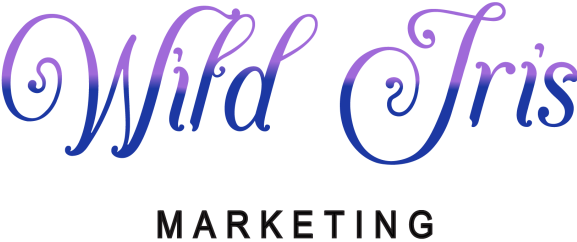That’s the Way a Cookie-Cutter Website Crumbles
In today’s internet-driven business world, your website is often the first interaction a potential client or customer has with you. For businesses in specialized industries like restaurants, medical offices and real estate agencies, this first impression can make or break your ability to succeed in getting customers. When large agencies with a generic approach to website design utilize a “one-size-fits-all” or “cookie-cutter” mentality, it can lead to big problems that stifle growth and damage your website’s user experience (UX).
Read on to explore why these cookie-cutter websites especially fail industry-specific businesses and what you can do to avoid this for yours.
The Cookie-Cutter Approach: One Shape for All
Surely you’ve seen cookie-cutters being used in Christmas baking. They’re designed to cut out identically shaped cookies quickly, efficiently and in large numbers: Christmas trees, gingerbread men, snowflakes. This is great for these holiday cookies, but it’s the last thing you’d want for a business that needs tailored options and solutions.
Large design and ad agencies often use templates and generic strategies to maximize their output when building websites. They rely on pre-built page designs and reusable assets, which seems cost-effective and time-saving at first glance. Unfortunately, this comes at the expense of your business’s brand, and your website’s customizability and functionality.
A financial management firm and a small boutique wedding-planning business might both get slick websites that look polished, but end up lacking features and brand messaging tailored to their unique and very different audiences.
How a Cookie-Cutter Website Affects Industry-Specific Businesses
Lack of Nuance
When your website is built by a large agency, it often lacks an understanding of your specific needs and those needs of your customers, as well potential pain points for both of you.
Consider a medical practice. Patients visiting their website are not just looking for healthcare; they’re looking for a trustworthy resource, accessibility, and HIPAA-compliant communication. A cookie-cutter website built by a large firm may have an attractive or flashy homepage, but not include vital features like secure appointment booking, content addressing patient concerns specific to that practice, or online tools for truly private communications about health issues.
SEOh no!
Industry-specific businesses such as real estate agents, need to reach niche, local audiences. Websites built by agencies who do not know or learn about the company for whom they are building a website often neglect detailed keyword research and content strategies required in these particularly competitive industries.
A ranchland-focused real estate agent or agency probably needs location-specific service area pages to rank for Google searches like “ranch land for sale near Denver.” A website built from a template may lack these pages or even the SEO keywords entirely. This will result in low or even non-existent search engine visibility.
Bad UX
A generic template approach often overlooks user behaviors, needs and pain points in a specific industry.
An ecommerce site selling pool equipment would need a search field and advanced filtering so their website visitors can find the products they need. They may even need product diagrams with clickable parts so that customers can click on a specific part and find the replacement piece they need. A cookie-cutter website built for them may look flashy, but likely prioritize aesthetics over usability, leaving visitors frustrated and unlikely to stay and convert into a customer as they don’t find what they actually need.
Little Cookie to Big Cookie
Industries and businesses evolve, and so do their technological needs. Generic agency websites are often rigid and difficult to expand or change as needed.
For a fast-growing e-commerce business that specializes in ever-changing or expanding product lines, a website that can’t handle a large influx of new inventory or additional sales channels quickly becomes a liability rather than a useful tool.
Compromised Brand Identity
If your website looks like every other website that has been churned out by a large agency, your brand identity suffers. Your colors, logos, and other brand identifiers may be minimal or completely absent.
A small law firm specializing in intellectual property law might require a sophisticated, minimalist look to convey professionalism and discipline focus. If their website looks like it could belong to a personal injury law firm instead, it lessens the impact of their expertise and brand and makes it harder to attract appropriate clients.
Why Industry-Specific Websites Need a Custom Recipe
Industry Compliance
Many industries including medical practices, financial and insurance providers and real estate agencies have strict compliance regulations. Cookie Cutter websites and web developers may or may not understand the nuances and specifics of these requirements and how to incorporate them into a site seamlessly.
For example, a medical office can not have forms sent through their website unless they are using a HIPPA compliant submission service or plug-in. The fines for not following this regulation can be extraordinarilly costly!
To Speak to Your Customers
A website tailored to a specific industry and business resonates with its users by addressing their unique needs, concerns and pain points. Additionally, a custom website differentiates your business from others in your industry, thus helping you stand out from the crowd.
A veterinarian’s website might include a blog about pet health, online appointment booking, and virtual updates about your pet’s visit. These features would immediately set them apart from their competitors and create a connection with customers who love and are concerned about their furry, scaly or feathered friends.
To Support Industry-Specific Goals
A well-designed website doesn’t just look nice, it exists toward an end-goal.
For a nonprofit, success might mean encouraging donations and volunteer workers. An agency who understands this organization will design features and calls-to-action (CTAs) to achieve these goals, while a cookie-cutter website with a poorly planned design might place the donation button below irrelevant and boring stock images and content that users fail to get past.
To Adapt as You Grow
Custom-built websites should be scalable and flexible, designed to be able to evolve as your business grows and changes.
A technology startup may start with a simple landing page or information-only site but later need e-commerce functions or customer support chatbots. With a custom website and good planning, these upgrades are not only achievable but can be made seamless to the running of your business.
To Enhance SEO Performance
Customized websites can cater to your specific audience by integrating SEO strategies and practices.
A small, local landscaping business can benefit from service pages optimized for different towns and neighborhoods in their service area. A custom-built site can include these pages and carefully researched SEO keywords to help better local search results.
To Strengthen Your Brand
A custom website built by a professional and focused agency should reflect your brand’s personality and values, helping you create an accurate and positive impression on visitors. Through thoughtful color choices, considered typography, and strong, interactive design elements, a website built specifically for your industry and business ensures your brand stands out.
How to Avoid a Cookie-Cutter Website
Choose the Right Agency
Look for an agency like Wild Iris Marketing that already understands or is eager to learn about your spcific business and industry. Ask about their process and commitment to creating tailored solutions.
Ask Questions
When exploring agencies, inquire about their experience with your industry, how they approach SEO for niche markets and whether they can build their designs to be scaled upward as necessary.
Collaborate
Your input is invaluable. An agency that cares about your business will involve you along the way, from first steps to launch, making sure the final website aligns with your business, values and brand.
Don’t Be in a Rush
Though it’s tempting to look for a quick turnaround, remember that a rushed, cookie-cutter website may cost you in the long run. Take the time to make sure that your website looks, operates, and has the features it should to make your customers happy and you successful.
The Sweet Treat of Custom Websites
Breaking free from the cookie-cutter production line requires a bit of extra effort and possibly investment, but the end result is worth it. A website built custom for your business and industry can enhance your online presence, build trust with your customers, and support the long-term success of your business.
Don’t let your website crumble like a cookie with a boring, generic design. Look for an agency that can cook up a design as unique as you and your brand. When it comes to standing out, your business and customers deserve more than a cookie-cutter approach.
Wild Iris is here and ready to help you build the website of your customer’s dreams.


